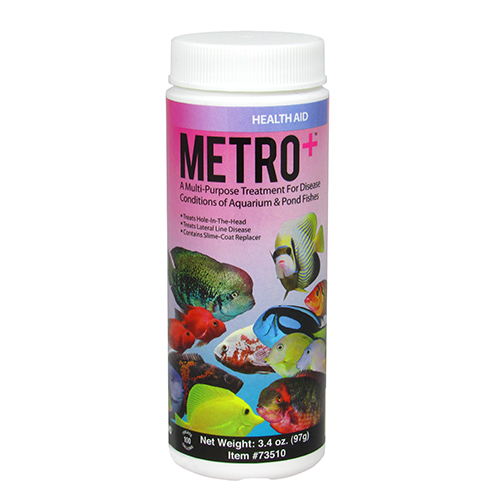Can You Mix Fish Medication
Fish are fascinating creatures, aren’t they? Whether you’re a seasoned aquarium enthusiast or new to the world of fish keeping, it’s important to know how to care for your aquatic pets. One common question that arises is, “Can you mix fish medication?” Well, my little fish-loving friend, let’s dive into the topic and explore the ins and outs of administering medication to our underwater buddies.
Now, before we plunge into the depths of this question, let’s understand why fish medication even exists. Just like humans and other animals, fish can fall ill too. And when they do, they might need some extra help in the form of medication. But here’s the catch: not all fish medications are created equal, and some may not play well together. So, can you mix fish medication without causing any harm to your finned friends? Hold your seahorses, and let’s find out!
When it comes to mixing fish medication, it’s important to tread carefully. While some medications can be safely combined, others can have adverse effects on the fish and its environment. So, my curious companion, join me as we unravel the mysteries of fish medication mixing, ensuring the well-being of our scaly friends. Let’s dive into the underwater world of fish care together!
When it comes to fish medication, it is generally not recommended to mix different medications without consulting a veterinarian or an expert in fish health. Mixing medications can have unpredictable effects and may not be safe for your fish. It’s best to follow the instructions provided with each medication or seek professional advice to ensure the health and well-being of your fish.

Can You Mix Fish Medication: A Comprehensive Guide
Fish medication can be a vital tool for keeping your aquatic pets healthy. However, many fish owners wonder if it’s safe to mix different types of medication for their fish. In this article, we will explore the topic of mixing fish medication and provide expert insights to help you make informed decisions about your fish’s health. From understanding the risks and benefits to learning about proper dosage and administration, we will cover it all. So, let’s dive in!
What is Fish Medication?
Fish medication refers to pharmaceutical products specifically formulated to treat various health conditions in fish. Just like any other pet, fish can experience a range of illnesses, including bacterial and fungal infections, parasitic infestations, and even certain viral diseases. Fish medication can come in different forms such as antibiotics, antiparasitics, antifungals, and general tonics to support the immune system. These medications are typically available in liquid form, but you may also find them in the form of tablets or powders that can be dissolved in water.
Benefits of Fish Medication
Fish medication can offer numerous benefits when used properly and responsibly. Firstly, it can effectively treat and cure various health conditions, helping your fish regain their health and vitality. Medications that target specific issues such as bacterial infections or parasitic infestations can be highly effective in eradicating the root cause of the problem. Additionally, fish medication can be an essential preventive measure to protect your fish from potential diseases and infections. Regular use of medication can boost the overall health and immunity of your fish, creating a safer and more comfortable environment for them to thrive in.
Another advantage of fish medication is the convenience it provides. With readily available medications, you can easily address any health concerns without the need for expensive veterinarian visits. This accessibility allows fish owners to take timely action in treating and preventing illnesses, thus potentially saving the lives of their aquatic pets. Remember, proactive care is key to maintaining the well-being of your fish, and fish medication can be an invaluable tool in your arsenal.
Risks of Mixing Fish Medication
Mixing fish medication can be a complex and potentially risky process. While there may be instances when it is safe to mix specific medications, it is always recommended to consult with a veterinarian or aquatic specialist before attempting any mixing. The main concern with mixing fish medication lies in the potential chemical reactions that can occur. Certain medications may interact with each other, leading to an altered potency, reduced efficacy, or even harmful side effects. Additionally, improper dosing or administration can also pose risks to the health of your fish.
If you are considering mixing fish medication, it is crucial to carefully review the instructions provided by the manufacturers of each medication. Look for any specific warnings or precautions regarding mixing, and if in doubt, seek professional advice. Most importantly, prioritize the safety and well-being of your fish above any convenience or cost-saving measures. Remember, the goal is to effectively treat and protect your fish, and sometimes that may mean using multiple medications separately rather than mixing them.
Tips for Administering Fish Medication
Administering fish medication can be a delicate process that requires careful attention and precision. Here are a few tips to ensure proper administration:
- Closely follow the dosage instructions provided with the medication. Never exceed the recommended dosage, as this can be harmful to your fish.
- If using liquid medication, measure the correct dosage using a syringe or a dropper. Avoid using household teaspoons or other makeshift measuring tools.
- Always treat the entire aquarium or tank unless otherwise specified. Partial treatments may not effectively eliminate the targeted infection or infestation.
- Remove any activated carbon or chemical filtration media from the aquarium before administering medication. These substances can neutralize the medication, rendering it ineffective.
- Observe your fish closely during the treatment period. Look for any changes in behavior, appetite, or physical appearance. If you notice any adverse reactions or worsening of symptoms, discontinue the medication and seek professional advice.
By following these tips and considering the individual needs of your fish, you can ensure the safe and effective administration of fish medication.
Can You Mix Antibiotics and Antiparasitics?
When it comes to mixing antibiotics and antiparasitics for fish, it is generally not recommended. Antibiotics and antiparasitics have different modes of action and target different types of infections. Mixing them can lead to unpredictable interactions and may compromise the effectiveness of both medications. It is best to use antibiotics and antiparasitics separately, as prescribed by a veterinarian or aquatic specialist.
Can You Mix Antibiotics and Antifungals?
Mixing antibiotics and antifungals for fish can also be risky and is generally not advisable. Antibiotics are designed to combat bacterial infections, while antifungals are formulated to target fungal infections. Mixing these types of medication can potentially lead to reduced efficacy or adverse reactions. It is important to treat bacterial and fungal infections separately using the appropriate medication for each.
Can You Mix Antiparasitics and Antifungals?
Combining antiparasitics and antifungals for fish is generally not recommended. Antiparasitics are specifically formulated to eliminate parasites, while antifungals target fungal infections. Mixing these medications can result in altered potency and reduced effectiveness in treating either condition. It is best to use antiparasitics and antifungals separately, following the instructions provided for each type of medication.
In summary, while fish medication can be an effective tool in maintaining the health of your aquatic pets, it is important to exercise caution when considering mixing different medications. Always consult with a veterinarian or aquatic specialist for expert guidance before attempting any mixing. Remember to prioritize the safety and well-being of your fish and follow the instructions provided by the manufacturers of each medication. By being informed and responsible, you can provide the best possible care for your fish and ensure their ongoing health and vitality.
Can You Mix Fish Medication?
- It is generally not recommended to mix different fish medications without consulting a veterinarian.
- Some medications may interact negatively with each other, causing harm to the fish.
- Using multiple medications simultaneously may lead to incorrect dosages and treatment inefficiency.
- Always follow the instructions provided by the medication manufacturer and consult with a professional if unsure.
- Seek advice from a veterinarian experienced in fish health for appropriate medication mixing and treatment plans.
Frequently Asked Questions
When it comes to fish medication, there may be instances where you need to mix different treatments. Here are some common questions about mixing fish medication:
1. Can I mix different types of fish medication together?
While it may be tempting to mix different medications to treat multiple issues, it’s important to exercise caution. Mixing fish medications can have unpredictable effects on your fish, and it may even result in harmful side effects. Each medication is formulated differently and may interact with other substances in unexpected ways. It’s best to consult with a veterinarian or an experienced aquatic professional before attempting to mix fish medications.
By seeking expert advice, you can ensure that the medications you are using are compatible and safe for your fish. They will be able to provide you with the necessary guidance on how to properly mix and administer fish medications, if it is indeed appropriate for your specific situation.
2. Are there any fish medications that can be safely mixed?
While it is generally recommended to avoid mixing fish medications, there may be some exceptions. Certain medications are specifically formulated to be used together, and they are often sold as a combination treatment. These combination medications have been carefully developed to work synergistically and are safe to use as directed.
However, it is important to follow the instructions provided with the medication and consult with a professional if you have any doubts or concerns. Mixing fish medications without proper guidance can lead to unintended consequences and may harm your fish instead of helping them.
3. Can I mix fish medication with water conditioners or other aquarium treatments?
It’s generally not recommended to mix fish medication with water conditioners or other aquarium treatments. Water conditioners and other treatments are designed to ensure the overall health of your aquarium and its inhabitants, while fish medications are specifically formulated to address certain diseases or infections. Combining them may dilute the effectiveness of the medication or interfere with its ability to treat the intended condition.
To avoid any potential complications, it’s best to administer fish medication separately from other aquarium treatments. If you need to treat your fish for multiple issues, it’s best to seek guidance from a professional who can provide you with the most appropriate course of action.
4. What are the risks of mixing fish medications?
Mixing fish medications without proper knowledge or guidance can pose several risks to your fish. Different medications may have conflicting ingredients or dosage instructions, which can result in harmful side effects or reduced effectiveness. Additionally, some medications may interact with each other, causing chemical reactions that can further harm your fish.
By mixing fish medications without proper understanding, you run the risk of causing more harm than good to your fish. It’s always best to consult with a veterinarian or an experienced aquatic professional to ensure the safety and well-being of your fish.
5. What should I do if I accidentally mix fish medications?
If you accidentally mix fish medications, it’s important to act quickly and minimize the potential harm to your fish. Start by observing your fish closely for any signs of distress or adverse reactions. If you notice any unusual behavior or symptoms, contact a veterinarian or aquatic professional immediately.
Provide them with all the necessary details, including the names of the medications you mixed, their dosages, and the size and species of your fish. They will be able to advise you on the best course of action and provide any necessary treatments to mitigate the potential harm caused by the mixed medications.

Aquarium Medications – From MILD to MASSIVE (What does What)
Summary
Fish medication may not be safe for humans and should not be used interchangeably. Always consult a healthcare professional for appropriate treatment options. Additionally, using fish medication in unintended ways may lead to antibiotic resistance and harmful side effects. It’s best to stick to medications specifically designed for humans to ensure safety and effectiveness.
In conclusion, while it may be tempting to use fish medication for human ailments, it is not recommended. It’s essential to prioritize our health and seek proper medical advice when treating illnesses.


